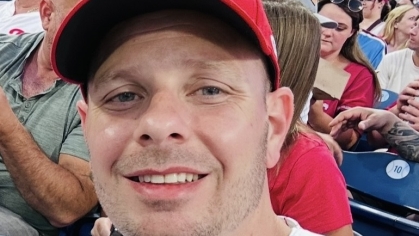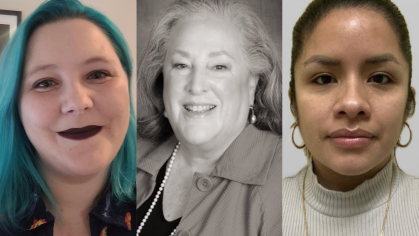By Shreya Gupta
We recently had the opportunity to speak with Katie Winner, MSW '19 about her experience at Rutgers School of Social Work, her work at Inspira and as a teenage counselor, her outlook on social work during the age of COVID-19, and her thoughts on this year's Social Work Month theme.
Q: What brought you to the field of social work?
A: My passion for social work was ignited during my studies. Knowing I wanted to go into a career where I could serve others, I first obtained my Associate’s degree from Camden County College in sign language interpretation. However, in order to be a licensed interpreter in the state of New Jersey, I was required to earn a Bachelor’s degree and chose to do so in applied psychology from the Florida Institute of Technology. Upon graduating, I realized that I was more drawn towards psychology in the realm of social work than interpretation. When I started working in a residential treatment center for adolescents struggling with addiction, I made the decision to further my education by receiving an MSW from Rutgers School of Social Work.
Q: Why did you choose to enroll at Rutgers School of Social Work?
A: Because I earned my Bachelor’s degree in applied psychology, I had to earn my MSW through a part-time program. Many of my colleagues at the residential treatment center had attended Rutgers and praised their experience. When I was researching the School, I came across countless positive reviews from those who had graduated from the program and found themselves in rewarding careers. Therefore, I decided to enroll myself into the three-year online MSW program.
My experience at the School was incredible. The program allowed me to continue working full-time at the residential treatment center, participate in two internships, network with exceptional people in the field, as well as prepare for and pass the licensing exam in one attempt. Rachel Schwartz, the Director of Online MSW Education, was extremely helpful in ensuring that everyone was on track with their courses and field placements every semester. I graduated magna cum laude in 2019 and am grateful for the valuable lessons I’ve learned.
Q: Tell us about your work at Inspira.
A: I am a discharge planner, and I work with at-risk populations, including the homeless, addicts, psychiatric and long-term care patients, as well as newly-diagnosed diabetic and cancer patients. I collaborate with nurses and other social workers to ensure that patients leaving the hospital are well-equipped with the resources they need to maintain their wellbeing at home. This can include medical equipment, at-home nurses and health aides, and outpatient counseling. For those patients that need to be relocated to another facility, such as inpatient psychiatric hospitals, homeless shelters, and nursing homes, we ensure that the patient is involved in the decision-making process, and that they and their families are comfortable with their placement.
Q: Tell us about your work counseling teens in the evenings.
A: I am a therapist at A Better Tomorrow Counseling Services, where I used to work as a behavioral assistant when I was a student. I conduct tele-health appointments two days a week, and then in-person services another two days a week. I provide children, teenagers, and young adults who struggle with anxiety, depression, and a change in their lives. Many of my current clients are battling with the emotions from situations that COVID-19 has inflicted upon them, including relationships, online schooling, and being caged inside their homes. It is extremely rewarding to see the positive impact I can make on these people’s lives by acting as their support system.
Q: How do you balance the demands of your professional and personal lives?
A: As social workers, it is common to experience the desire to do more to help others. However, it is important that we weave practices into our routines that help us avoid burnout. For me, this involves carving out time on the weekends to spend time with my husband and my dogs. I also ensure that I am only working overtime two weekends a month, and taking proper rest the other two. Taking time to reset on the weekends is important, so that I can help others to the best of my ability during the weekdays.
Q: How has the current COVID-19 pandemic impacted your practices as a social worker?
A: COVID-19 has brought changes to both my work at the hospital and as a counselor. It has become harder to safely discharge patients, especially those who are homeless, as many shelters have closed their doors in order to protect the individuals they currently serve. The pandemic has also pushed mental health to the background, as we are focused on maintaining everyone’s physical health. I always remind my clients that mental health can greatly impact our physical health, and that it is important to take care of both.
Q: Social Work Month is right around the corner in March, and this year’s theme is “Social Workers are Essential.” What does this theme mean to you?
A: Many people do not recognize that social workers are involved in almost every field of work, and that we are only seen when needed. We provide vital assistance to people who require support services in areas such as housing, meals, medicine, and mental health. We may go undetected to those who are not struggling with such issues, but we are the light at the end of a dark tunnel for those who need us. While we are essential, we can go unnoticed, and I am happy that there is a month to celebrate all that we do.



